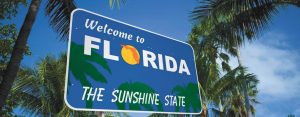By Anthony P. Pires, Jr., B.C.S., Florida Local Government Lawyer


The Sunshine Law “is of both constitutional and statutory dimension” and can be found in Article 1, Section 24 of the Florida Constitution and Section 286.011 of the Florida Statutes. These constitutional and statutory provisions establish a fundamental right of access to virtually all meetings of boards, commissions, and other governing bodies of state and local governmental agencies or authorities, with the exception of the courts and the state Legislature, which has its own constitutional provision relating to access.
The Three Elements of the Florida Sunshine Law
The Sunshine Law requires:
(1) meetings of public boards or commissions must be open to the public.
(2) reasonable notice of such meetings must be given; and
(3) minutes of the meetings must be taken and promptly recorded.
The law applies whenever two or more board members meet and discuss items reasonably foreseeable to be on an upcoming agenda.
Government Transparency
These requirements result in what may appear to be inefficiencies because, for example, opponents of the proposed action by the governmental body can watch the decision-making process, but the goal of the Florida Sunshine Law is not efficiency, it is transparency.
Another perceived inefficiency is that discussions can only happen at publicly noticed meetings at locations accessible to the public. Thus, if a board subject to the Sunshine Law only meets once per month, absent setting and noticing special meetings, it cannot address items more frequently than that.
Exceptions to the Sunshine Law
There are a limited number of exceptions to the requirement that meetings must be open to the public. One exception is when a government is a party to pending litigation. During those times, Florida government boards can hold closed sessions with their attorneys with certain limitations and under strict conditions. These meetings, however, must have a court reporter, and the transcript becomes a public record after the litigation is concluded.
Government-in-the-Sunshine Manual
The Florida Attorney General’s office compiles an annual guide known as the Government-in-the-Sunshine Manual at no taxpayer expense to assist the public. You can find it at:
https://legacy.myfloridalegal.com/webfiles.nsf/wf/mnos-b9qq79/$file/sunshinemanual.pdf.
Talk to Our Florida Local Government Law Attorneys
If you need assistance with issues surrounding the Sunshine Law, contact one of the Florida government relations attorneys at Woodward, Pires & Lombardo, P.A. today.
About the Author
Anthony (“Tony”) P. Pires, Jr. is a Partner at Woodward, Pires & Lombardo, P.A. He provides legal services to clients throughout Collier and Lee Counties in Local Government Law, Municipal Law, Land Use and Zoning Law, Land Use Applications, Rezonings, Bond Validation, and Administrative Law. Tony serves as long-standing general counsel to various Florida community development districts (CDDs) and as special counsel to various county constitutional officers. His exceptional knowledge of Southwest Florida’s growth and development and his legal expertise allow him to guide public and private clients through complicated land use, local government, and real estate matters. Tony’s law practice showcases his tireless dedication to public service and client relationships.
Tony has been a Board Certified Specialist (B.C.S.) in City, County and Local Government Law by The Florida Bar for over 25 years. He is rated AV Preeminent® by Martindale-Hubbell® Peer Review Ratings™, a rating given to only attorneys who are ranked at the highest level of professional excellence for their legal expertise, communication skills, and ethical standards by their peers.
Woodward, Pires & Lombardo, P.A.
Naples Office:
3200 Tamiami Trail N, Ste 200
Naples, FL 34103
239-649-6555
Marco Island Office:
606 Bald Eagle Dr, Ste 500
Marco Island, Fl 34145
239-394-5161
 Southwest Florida's Health and Wellness Magazine Health and Wellness Articles
Southwest Florida's Health and Wellness Magazine Health and Wellness Articles

